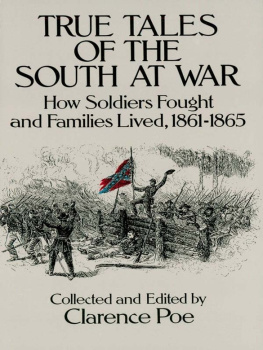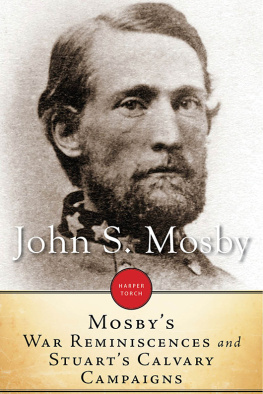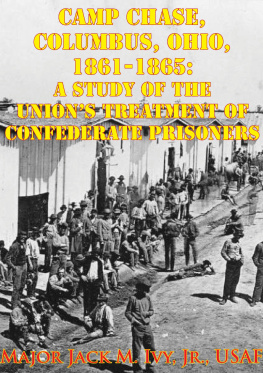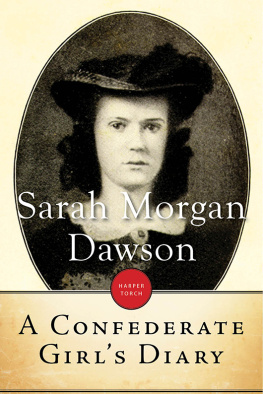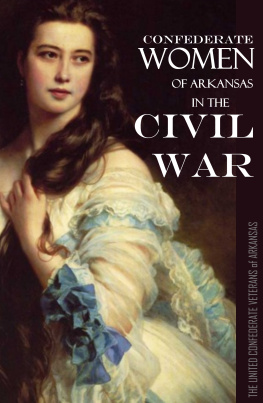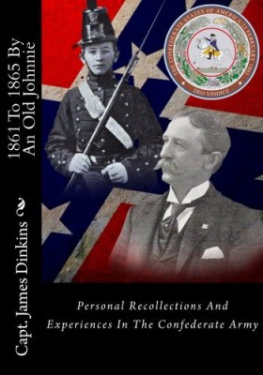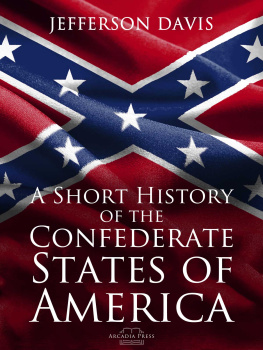I.
Table of Contents
It was in the autumn of 1861 that I made up my mind to go to the Southern States of America, and enter the Confederate Army. Looking back more than twenty years, I find it difficult, as the man of forty-two, to recall the exact feelings of the boy of twenty. I can say, however, that I had no expectation whatever of any gain, or advantage to myself. I had a sincere sympathy with the Southern people in their struggle for independence, and felt that it would be a pleasant thing to help them to secure their freedom. It was not expected, at that time, that the war would last many months, and my idea simply was to go to the South, do my duty there as well as I might, and return home to England. I expected no reward and wanted none, and had no intention whatever of remaining permanently in the Southern States.
There was much difficulty, of course, in obtaining accurate information as to the best way of reaching the seat of war in the South. I found that I could probably go by way of Nassau, N. P., but the expense would have been greater than I cared to incur, and the other mode of entering the Confederacyby going to a Northern port and slipping through the lineswas exceedingly troublesome, and was, besides, uncertain in its result. However, I determined to go in some fashion, and just about this time the Confederate States steamer Nashville arrived at Southampton. This vessel had been one of the regular steamers on the line between Charleston and New York, and was seized, I believe, by the Confederate authorities after hostilities began. It had been determined to send the Hon. James M. Mason and the Hon. John Slidell to represent the Confederate States in England and France respectively, and the Nashville was fitted out for the purpose of taking them to England. They changed their plan, unfortunately for them, and went in a small vessel to Havana, where they took the mail steamer Trent for St. Thomas. The trip of the Nashville was not, however, abandoned, and, under command of Captain Robert B. Pegram, she ran the blockade at Charleston and reached Southampton in safety, capturing and destroying during the voyage a fine American ship named the Harvey Birch.
The arrival of the Nashville at Southampton caused considerable stir. By those who were friendly to the North she was spoken of as a pirate, and her officers and crew were dubbed buccaneers. While some of the newspapers were disposed to order out Captain Pegram and his crew for instant execution, there were others which were quite friendly in tone. I remember that it became necessary for Captain Pegram to write a letter to The Times, in which he explained that, far from being a pirate, he was a regularly commissioned officer of the Confederate States Navy, and that the Nashville was a vessel of war of the Confederate States, entitled to the consideration that would be shewn to the war vessel of any other Government. This view was taken by the English authorities, although, under the proclamation of neutrality which the Queen had issued, the Nashville was not allowed to obtain any sort of equipment which could, by any stretch of the imagination, be conceived to be capable of use in war. The authorities at Southampton were so strict in their construction of the neutrality proclamation that they objected to our strengthening the forward deck, lest it might increase the efficiency of the vessel for fighting purposes. No repairs were allowed to be made except such as would place the Nashville in the precise condition in which she was when she left Charleston. The passage had been rough, or no repairs of the kind allowed would have been necessary. Punch, of course, made fun of the whole business, and had some rhyming verses on the subject, in which the name of Captain Pegram, the commander of the Nashville, was made to rhyme with megrim.
It occurred to me that if I could in any way secure a passage to the South on the Nashville, it would be much better than trying to get there by way of Nassau or the Potomac. A man named Smith, to whom I was introduced in London by a friend, and who told me that a near kinsman of his was at that time, or had been, Governor of Arkansas, gave me a letter of introduction to Mr. North, who was one of the Confederate agents in London. I saw Mr. North and told him what I wanted, but I do not think that I made a very favorable impression. It seemed to him so extravagant a project that he evidently doubted my sincerity and honesty of purpose. The most that I could accomplish was to obtain from him a note introducing me to Captain Pegram. This was something gained, and a few days afterwards I went to Southampton.
As I neared my destination, I was surprised to find how large a share of public attention was given to the Confederate vessel. The appearance of the Nashville, her size, her speed, and the probable plans of her commander were diligently canvassed by those traveling with me, and I was gratified to find that every one had a good opinion of the conduct and character of the officers and crew of the vessel. Upon my arrival I went at once to the docks, and far in the distance saw a flag which was entirely new and strange. As I drew nearer I found that it was flying from the peak of a large paddle-wheel steamer, painted black, and with more upper-works than I had been accustomed to see on sea-going vessels. The flag that I had seen was the Stars and Bars of the Confederacy, and the vessel was the Nashville. I went aboard and to my great annoyance was told that Captain Pegram was in London. The officer on duty was very courteous and disposed to be communicative, and I had a long talk with him. This officer was Lieutenant John J. Ingraham, of Charleston, S. C. I learned that he was a graduate of the Naval Academy at Annapolis, and it rather daunted me to be told that one could not expect to attain the rank of officer in the Navy unless one had had the thorough training of a naval school, or practical education at sea.
Some days later I went down to Southampton again, and this time saw Captain Pegram. The sweetness and dignity of his manner impressed me at once, and I unbosomed myself to him without reserve. I may mention here that he had been twenty-five or thirty years in the Navy when Virginia seceded from the Union, and instantly resigned his commission to share the fortunes of his native State. In his profession he had already gained distinction, and I have seen the sword of honor presented to him by the State of Virginia in recognition of his gallantry in an engagement with pirates in the Chinese Seas. On the golden scabbard of this sword his name and rank are engraved, with this simple but eloquent inscription:
The State of Virginia to a devoted son.
It need not be said that Captain Pegram was exceedingly kind and patient, but he told me frankly that it was impossible for him to do what I wished. He said: I have no office which I can give you, and this being a Government vessel, I cannot take you as a passenger. Afterwards, I learned that some of the officers suggested that I might be a Yankee spy endeavoring to get into a position where I should be able to report the movements of the




